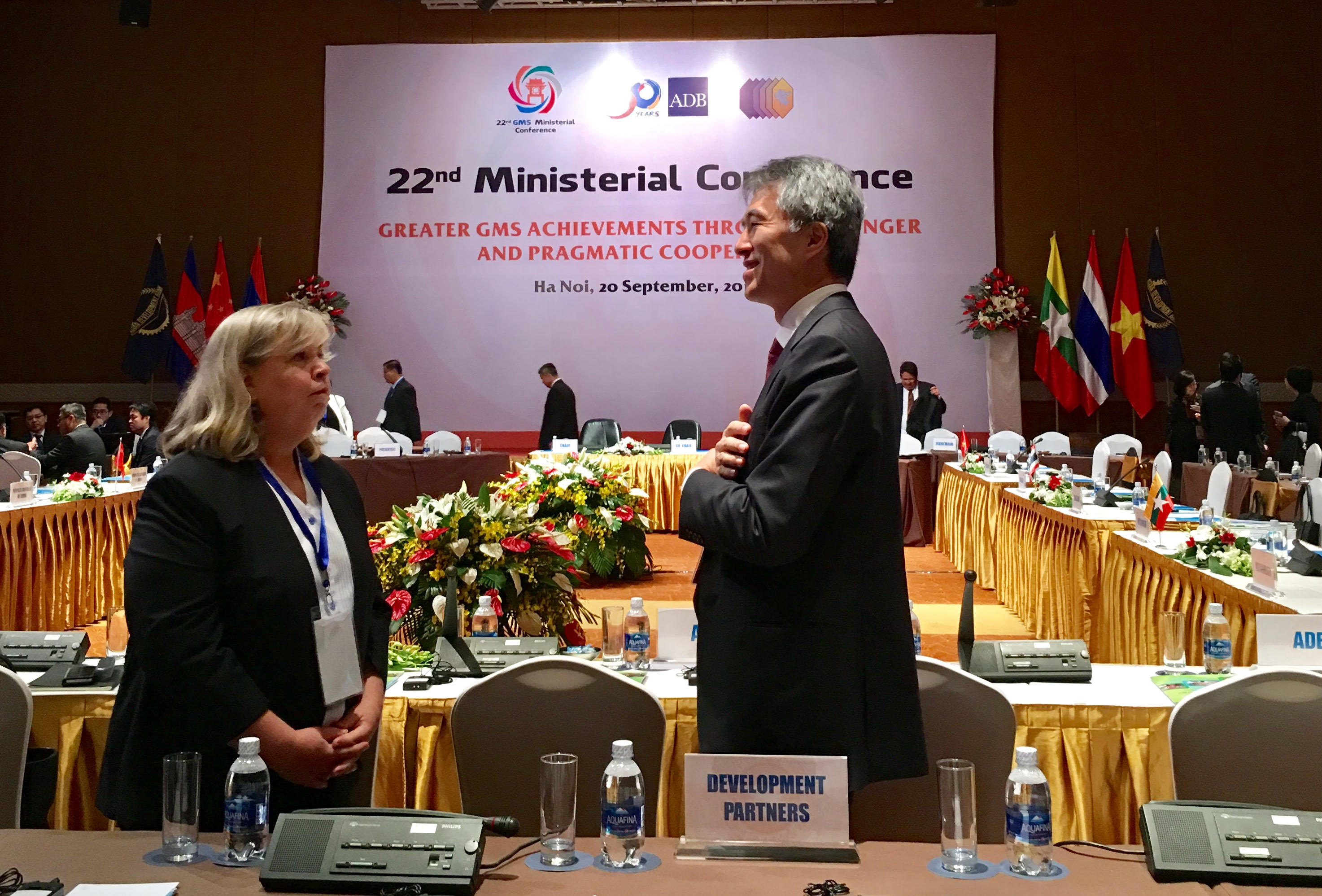Vietnam affirms to support GMS’ efforts of development
 |
| GMS countries pledged to step up cooperation efforts and draw ties tighter |
This was announced by Minister of Planning and Investment Nguyen Chi Dung at the 22nd Ministerial Conference held this morning in Hanoi.
During the past 25 years since the GMS economic co-operation programme was established, the efforts of GMS countries created a deep and wide connectivity among themselves in the fields of transport infrastructure, power, tourism, and agriculture, among others.
The Asian Development Bank (ADB) made important contributions to the programme’s success. Notably, ADB not only raised the idea to establish the GMS economic co-operation programme, but also took on the role of the strategic consultant unit for co-operation programmes between GMS countries. Besides, it is considered an important partner providing finances, and technical and human resources.
 |
| Nguyen Chi Dung - Minister of Planning and Investment |
According to Dung, along with GMS countries’ achievements, in the upcoming time the bloc will have to face numerous challenges, necessitating tighter co-operation, while simultaneously increasing financial support from international organisations and stimulating the private sector to join the programme.
On behalf of Vietnam, Dung affirms that Vietnam will call for more capital from both international and domestic organisations to accelerate the implementation of projects under the priority sectors that Vietnam joined in the GMS cooperation programme. Besides, Vietnam will increase co-operation with ADB, GMS countries, and even private businesses to promote co-operation programmes.
The minister also stated that the conference is an opportunity for GMS countries to review past co-operation programmes and build new strategic directions for both the short and long terms.
Notably, ministers of GMS countries will discuss building the Hanoi action plan for the 2018-2022 period. The Hanoi action plan will play an important role in realising the GMS strategic framework in the 2012-2022 period. The action plan will be submitted to leaders of GMS countries to review at the 6th GMS Leaders’ Summit which will be held in Vietnam in March 2018.
Besides, ministers will review the strategic framework and action plan of GMS human resources development in the 2013-2017 period, while simultaneously discussing the strategic framework for the investment sector in 2018-2022 as well as the plans to develop the tourism sector in the 2016-2025 period.
The 22 Ministerial Conference coincides with the 9th Economic Corridors Forum and the 25th Anniversary of the Greater Mekong Sub-Region Economic Co-Operation Programme, leading up to the 6th GMS Summit of Leaders in March 2018 in Hanoi.
Established in 1992, GMS is made up of Cambodia, the People’s Republic of China (PRC, specifically Yunnan province and Guangxi Zhuang autonomous region), the Lao People’s Democratic Republic, Myanmar, Thailand, and Vietnam. The GMS economic co-operation programme is considered the most comprehensive co-operation programme of the Mekong Sub-Region.
What the stars mean:
★ Poor ★ ★ Promising ★★★ Good ★★★★ Very good ★★★★★ Exceptional
Latest News
More News
- Vietnamese firms win top honours at ASEAN Digital Awards (January 16, 2026 | 16:45)
- ASEAN Digital Ministers' Meeting opens in Hanoi (January 15, 2026 | 15:33)
- ASEAN economies move up the global chip value chain (December 09, 2025 | 13:32)
- AWS unveils major AI innovations at re:Invent 2025 (December 04, 2025 | 19:06)
- Japanese embassy marks 20 years of Japan-ASEAN bond market support (December 02, 2025 | 16:57)
- Vietnam leads ASEAN in consumer optimism (November 26, 2025 | 15:58)
- CPTPP ministers convene council meeting in Melbourne, launch new accession talks (November 22, 2025 | 11:33)
- Flu wave hits Southeast Asia, highlighting gaps in protection for the elderly (November 06, 2025 | 12:13)
- 72 nations sign landmark Hanoi cybercrime convention (October 26, 2025 | 18:00)
- UN Secretary-General commends Vietnam’s global leadership (October 26, 2025 | 09:00)

















 Mobile Version
Mobile Version